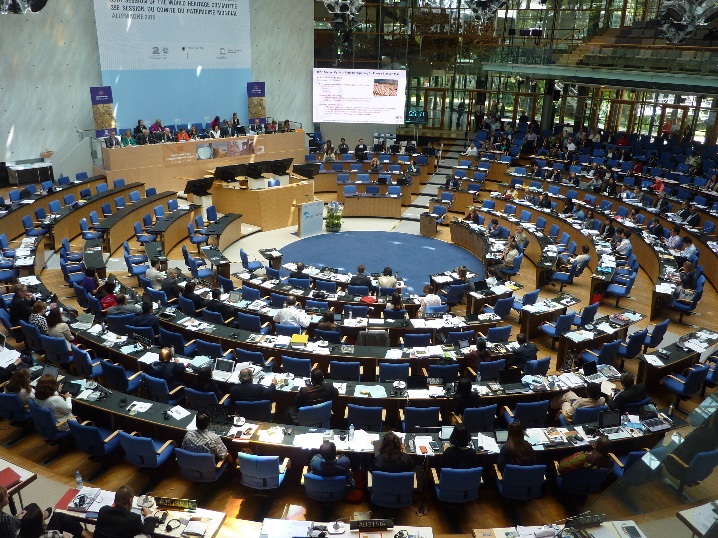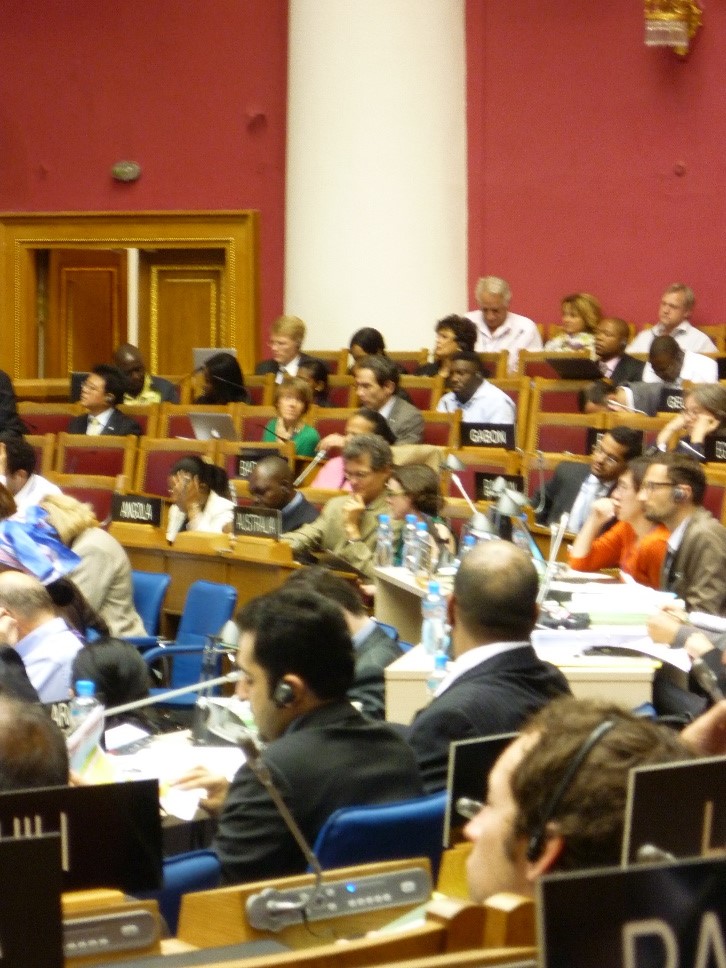Pertinence des conventions internationales pour la gestion des AMP
Les délégués du Comité du patrimoine mondial lors de la réunion à Bonn, en Allemagne, en 2014. Le président du Comité et le secrétariat de l'UNESCO se trouvent en haut à gauche sous l'écran géant.
Quelques-uns des représentants des 21 États parties qui composent collectivement le Comité du patrimoine mondial lors de la réunion de Saint-Pétersbourg, en Russie, en 2012.
L'Australie est signataire d'un large éventail de conventions/cadres internationaux relatifs aux AMP ; les principaux sont énumérés dans la section Ressources ci-dessous et comprennent des conventions et traités mondiaux et régionaux ainsi que des accords bilatéraux.
La base fondamentale du droit international et des conventions est le respect et la reconnaissance mutuels des lois et des actes exécutifs des autres États parties - Notez que le terme "État partie" est utilisé dans de nombreuses conventions internationales à la place de "nation" ou "pays" - mais ne confondez pas ce terme avec les États fédéraux ou les territoires. Certaines des obligations découlant de ces conventions internationales ont été incorporées dans le droit national australien (par exemple, certaines dispositions des principales conventions internationales concernant les AMP). certaines dispositions des principales conventions internationales portant sur des questions importantes telles que le patrimoine mondial sont incorporées dans la législation environnementale nationale de l'Australie, la loi de 1999 sur la protection de l'environnement et la conservation de la biodiversité). L'impact des conventions internationales sur les différents pays varie en fonction du contexte réglementaire, juridique et politique du pays en question, du fait que ce dernier est ou non partie aux conventions ou accords pertinents, et de la mise en œuvre de ces derniers au niveau national.
- L'ensemble des instruments internationaux, associés à la législation nationale et, dans une moindre mesure, à la législation de l'État du Queensland, confèrent à la RGO une très forte protection juridique. Le droit international peut être utile pour interpréter la législation nationale et peut aider en cas d'ambiguïté dans la législation nationale.
- Une fois qu'un pays a signé et ratifié une convention internationale, il a des obligations internationales qu'il doit respecter ; cependant, il n'est pas facile pour la communauté mondiale de faire respecter la loi aux pays qui ne la respectent pas - Le niveau et le détail des rapports sur les obligations internationales varient ; quelques exemples sont présentés dans la section "Ressources" ci-dessous.
- L'approche de précaution est désormais largement acceptée comme un principe fondamental du droit international de l'environnement et est maintenant largement reflétée dans le droit et la politique australiens de l'environnement - Certains des problèmes auxquels sont confrontés les récifs coralliens, tels que le changement climatique, sont mondiaux ou transfrontaliers et sont abordés dans les conventions internationales - cependant, bien que ces problèmes soient mondiaux, beaucoup d'entre eux nécessitent également des solutions au niveau local pour une mise en œuvre efficace.


